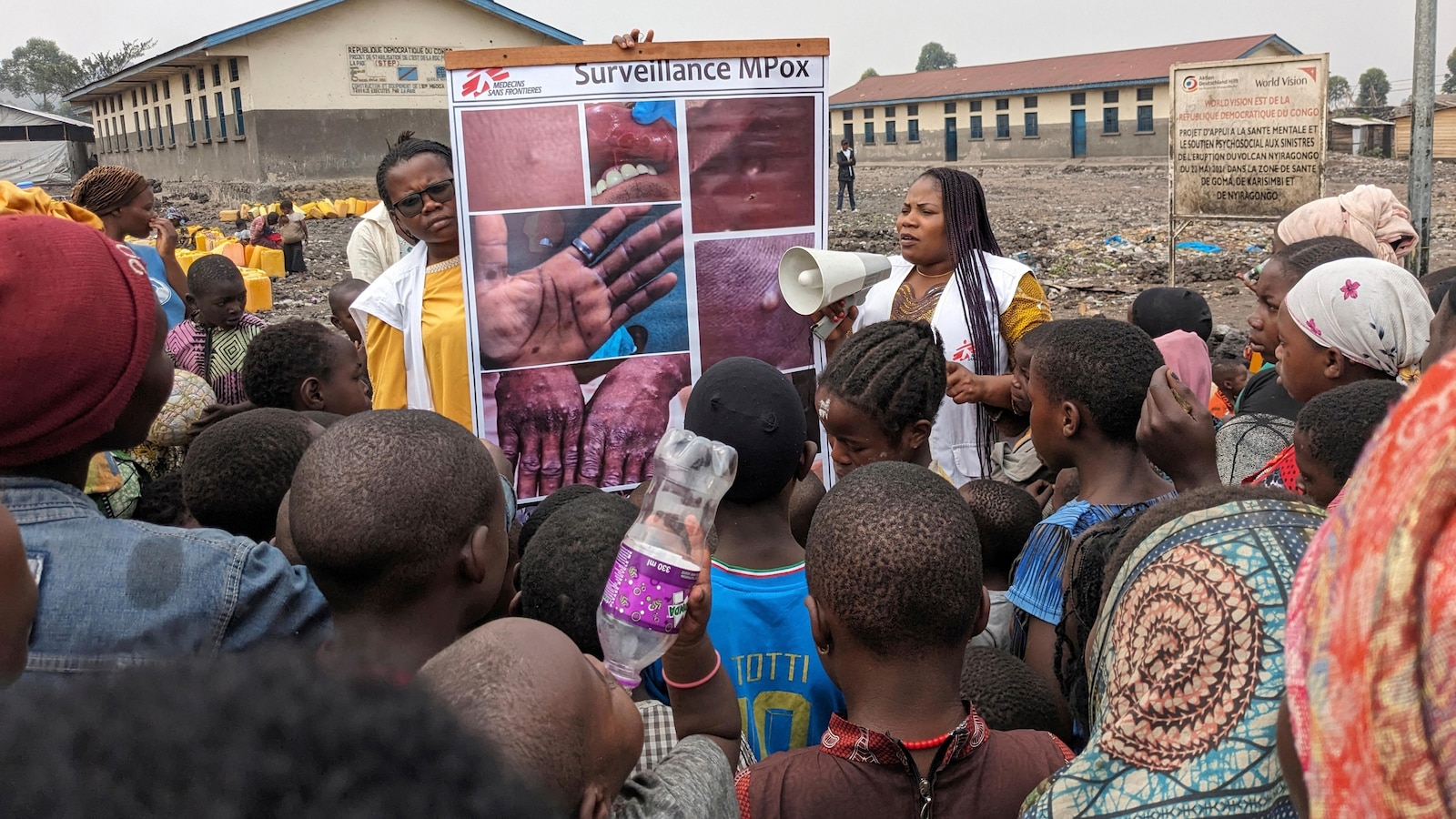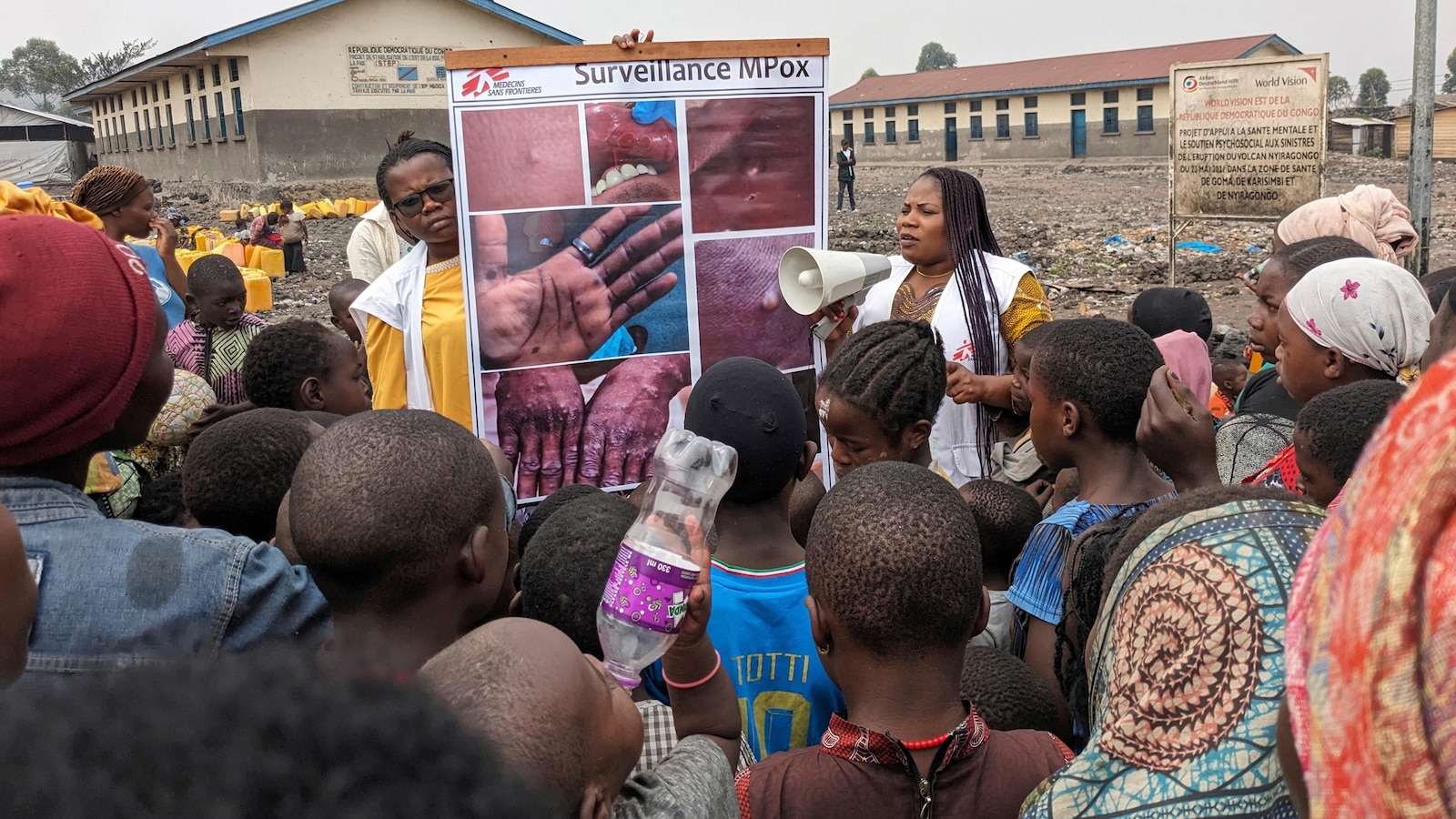WHO Declares Mpox Outbreaks in Congo and Beyond a Global Emergency
The World Health Organization (WHO) has declared the ongoing mpox outbreaks in the Democratic Republic of Congo (DRC) and other African nations a global emergency. This decision, made on Wednesday, comes as cases of the virus continue to rise, with new forms of the virus emerging, and vaccine availability remains limited on the African continent.
Earlier this week, the Africa Centers for Disease Control and Prevention (Africa CDC) had declared the outbreaks a public health emergency, with over 500 fatalities. The organization called for international assistance to curb the virus’s spread.
Widespread Outbreak and High Mortality Rate
WHO Director-General Tedros Adhanom Ghebreyesus expressed concern about the potential impact of the ongoing outbreaks. “This is something that should concern us all… The potential for further spread within Africa and beyond is very worrying,” he said.
According to the Africa CDC, mpox has been detected in 13 African countries this year, with Congo bearing the brunt of the outbreak, accounting for over 96% of cases and fatalities. Compared to the same period last year, cases have increased by 160% and deaths by 19%. The total case count stands at over 14,000, with 524 fatalities.
The emergence of a new strain of mpox originating from Congo has raised further alarm. This strain appears to have a higher mortality rate, estimated to be around 3-4%.
2022 Mpox Emergency and a Mixed Global Response
In 2022, WHO declared another mpox outbreak a global emergency after its spread to over 70 countries that had not previously reported the virus. That outbreak primarily affected gay and bisexual men, with a fatality rate of less than 1%.
Mpox expert Dr. Michael Marks from the London School of Hygiene and Tropical Medicine believes that the declaration of an emergency for the current outbreaks in Africa is justified if it prompts increased support for containment efforts.
“It’s a failure of the global community that things had to get this bad to release the resources needed,” he said.
Mpox in Africa: Impact and Challenges
Africa CDC officials have highlighted that nearly 70% of cases in Congo are children under the age of 15, who also account for 85% of fatalities.
Jacques Alonda, an epidemiologist working in Congo, expressed particular concern about the spread of mpox in refugee camps in the country’s conflict-ridden eastern region.
“The worst case I’ve seen is that of a six-week-old baby who was just two weeks old when he contracted mpox,” Alonda said. “He got infected because hospital overcrowding meant he and his mother were forced to share a room with someone else who had the virus, which was undiagnosed.”
The impact of mpox on Congo’s already strained healthcare system, which is battling malnutrition, measles, and cholera, has been severe, according to Save the Children.
Mpox has recently been identified for the first time in four East African nations: Burundi, Kenya, Rwanda, and Uganda, with all outbreaks linked to the one in Congo. In Ivory Coast and South Africa, health authorities have reported outbreaks of a different and less severe form of mpox that spread worldwide in 2022.
The lack of vaccine availability in Africa, where most cases and deaths have been reported, presents a significant challenge in controlling the outbreak. Western countries largely contained the virus in the 2022 outbreak through vaccination and treatment, but these resources have been scarce in Africa.
Potential Solutions and Urgent Actions
Experts suggest that inoculating people against smallpox, a related disease, could be considered in the absence of mpox vaccines licensed in the West. This would require a large supply of vaccines to reach populations most at risk, including sex workers, children, and adults in outbreak zones.
Congo has requested 4 million doses of the mpox vaccine, primarily for children under 18. However, the country has yet to receive any doses.
Dr. Dimie Ogoina, a Nigerian mpox expert who chaired WHO’s emergency committee, emphasized the need for stronger surveillance to track the outbreaks.
“We’re working blindly when we’re not able to test all suspected cases,” Ogoina said.
Investment Needed: Lessons from Past Declarations
WHO’s emergency declaration aims to mobilize donor agencies and countries into action. However, the response to previous declarations has been mixed.
Dr. Boghuma Titanji, an infectious disease expert at Emory University, pointed out that the previous WHO emergency declaration for mpox “did very little to move the needle” in terms of providing essential resources like diagnostic tests, medicines, and vaccines to Africa.
“The world has a real opportunity here to act in a decisive manner and not repeat past mistakes, (but) that will take more than an (emergency) declaration,” Titanji said.
The need for urgent investment in vaccines, testing, and surveillance in Africa is paramount to effectively control the ongoing mpox outbreaks and prevent their further spread.



